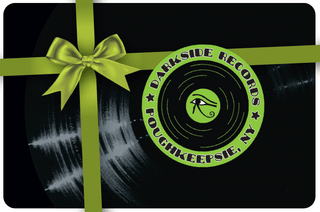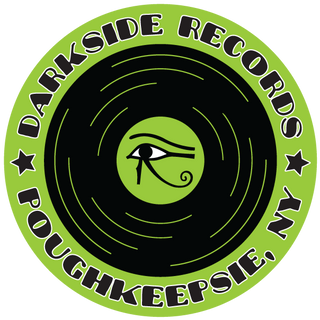Bonzie- When I Found The Trap Door

The latest album from Bonzie, When I Found The Trap Door, affirms her as the rare pop visionary with the power to transform our perception of the world. Fully produced by Bonzie-who also served as the sole writer on every song and played a variety of instruments throughout the album-When I Found The Trap Door further expands her singular artistry and mines inspiration from such eclectic sources as the psychedelic sci-fi of Satoshi Kon's Paprika and the elemental folk/blues of guitarist Elizabeth Cotten. The result: a body of work that provides a welcome rupture from the confines of reality, inviting both illuminating contemplation and absolute surrender. In creating her new LP, Bonzie dreamed up each exquisitely detailed track in her home studio and at famed facilities like Hollywood's EastWest Studios (where she recorded a full orchestra led by conductor Anthony Parnther, who's contributed to the scores to such films as Oppenheimer) and Electrical Audio (the Chicago studio founded by the late Steve Albini, who also worked with Bonzie on a 2016 project). After overseeing production entirely on her own-an exceptionally bold move in a musical landscape notoriously lacking in female producers-Bonzie joined forces with legendary mixing engineer Michael Brauer (the multi-Grammy-winner known for his work with Bob Dylan, The Rolling Stones, Coldplay, and more), who further refined the resplendent sound of When I Found The Trap Door. An infinitely shapeshifting artist whose sonic vocabulary encompasses a vast expanse of genres and styles-art-pop, post-rock, freak-folk, jazz, electro, alt-R&B, and more-Bonzie felt pulled toward a decidedly minimalist approach to the musical foundation of When I Found The Trap Door (an album she refers to as a "storytelling record"). Partly inspired by her fascination with folk artists from the mid-century roots-music revival, When I Found The Trap Door ultimately matches it's crystalline intimacy with an ineffably magical quality that's closely tied to the album's exploration of the often-slippery line between truth and illusion-an inquiry informed by her many re-watchings of Paprika, as well as her reflections on the rapid development of AI and our increasing inability to distinguish between real and fake.
The latest album from Bonzie, When I Found The Trap Door, affirms her as the rare pop visionary with the power to transform our perception of the world. Fully produced by Bonzie-who also served as the sole writer on every song and played a variety of instruments throughout the album-When I Found The Trap Door further expands her singular artistry and mines inspiration from such eclectic sources as the psychedelic sci-fi of Satoshi Kon's Paprika and the elemental folk/blues of guitarist Elizabeth Cotten. The result: a body of work that provides a welcome rupture from the confines of reality, inviting both illuminating contemplation and absolute surrender. In creating her new LP, Bonzie dreamed up each exquisitely detailed track in her home studio and at famed facilities like Hollywood's EastWest Studios (where she recorded a full orchestra led by conductor Anthony Parnther, who's contributed to the scores to such films as Oppenheimer) and Electrical Audio (the Chicago studio founded by the late Steve Albini, who also worked with Bonzie on a 2016 project). After overseeing production entirely on her own-an exceptionally bold move in a musical landscape notoriously lacking in female producers-Bonzie joined forces with legendary mixing engineer Michael Brauer (the multi-Grammy-winner known for his work with Bob Dylan, The Rolling Stones, Coldplay, and more), who further refined the resplendent sound of When I Found The Trap Door. An infinitely shapeshifting artist whose sonic vocabulary encompasses a vast expanse of genres and styles-art-pop, post-rock, freak-folk, jazz, electro, alt-R&B, and more-Bonzie felt pulled toward a decidedly minimalist approach to the musical foundation of When I Found The Trap Door (an album she refers to as a "storytelling record"). Partly inspired by her fascination with folk artists from the mid-century roots-music revival, When I Found The Trap Door ultimately matches it's crystalline intimacy with an ineffably magical quality that's closely tied to the album's exploration of the often-slippery line between truth and illusion-an inquiry informed by her many re-watchings of Paprika, as well as her reflections on the rapid development of AI and our increasing inability to distinguish between real and fake.



![Chappell Roan- The Rise And Fall Of A Midwest Princess [Anniversary Edition] [My Kink Is Coral 2 LP]](http://shop.darksiderecords.com/cdn/shop/files/ChappellRoan_AnniversaryPS.jpg?v=1727164438&width=320)

